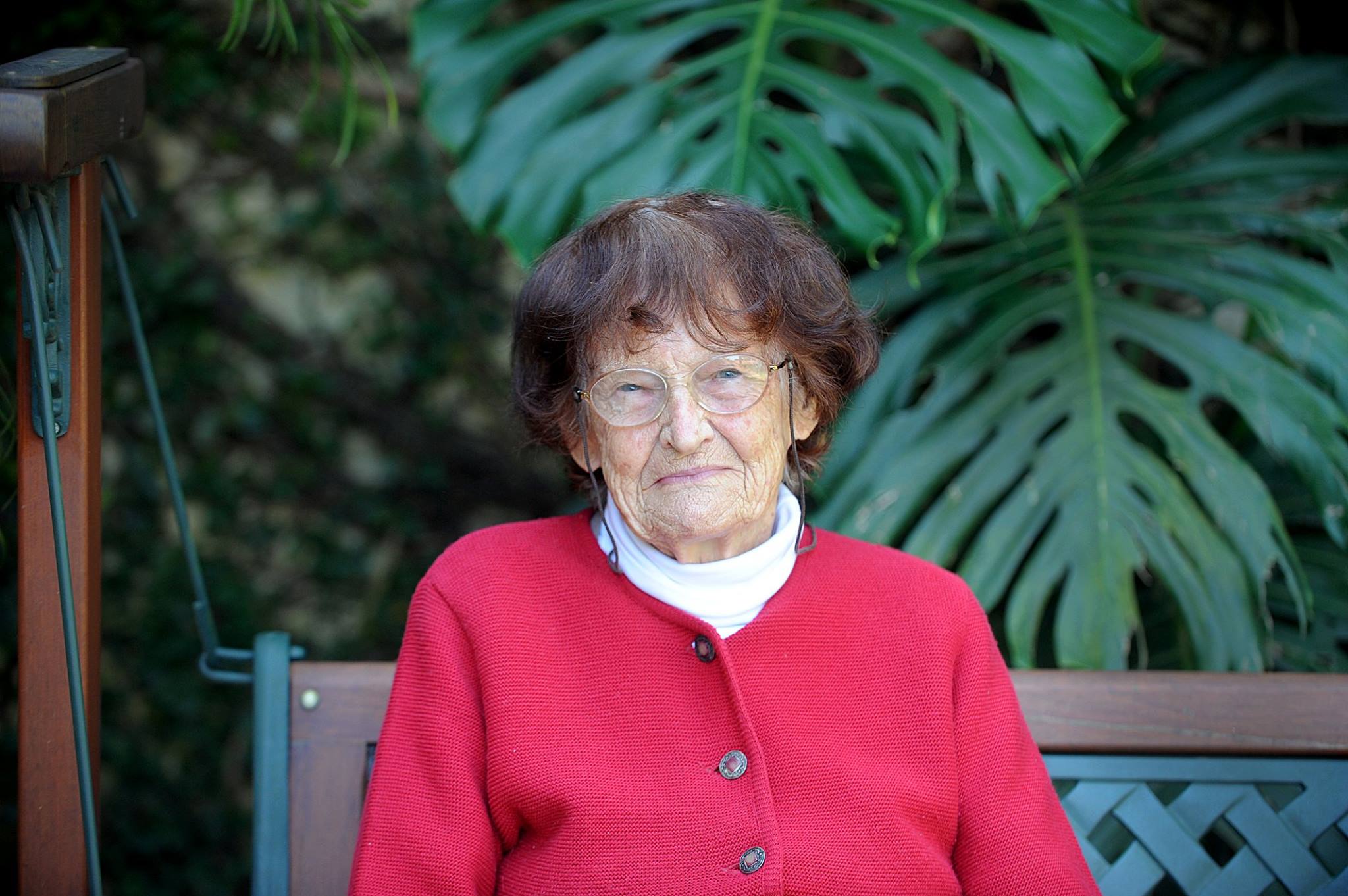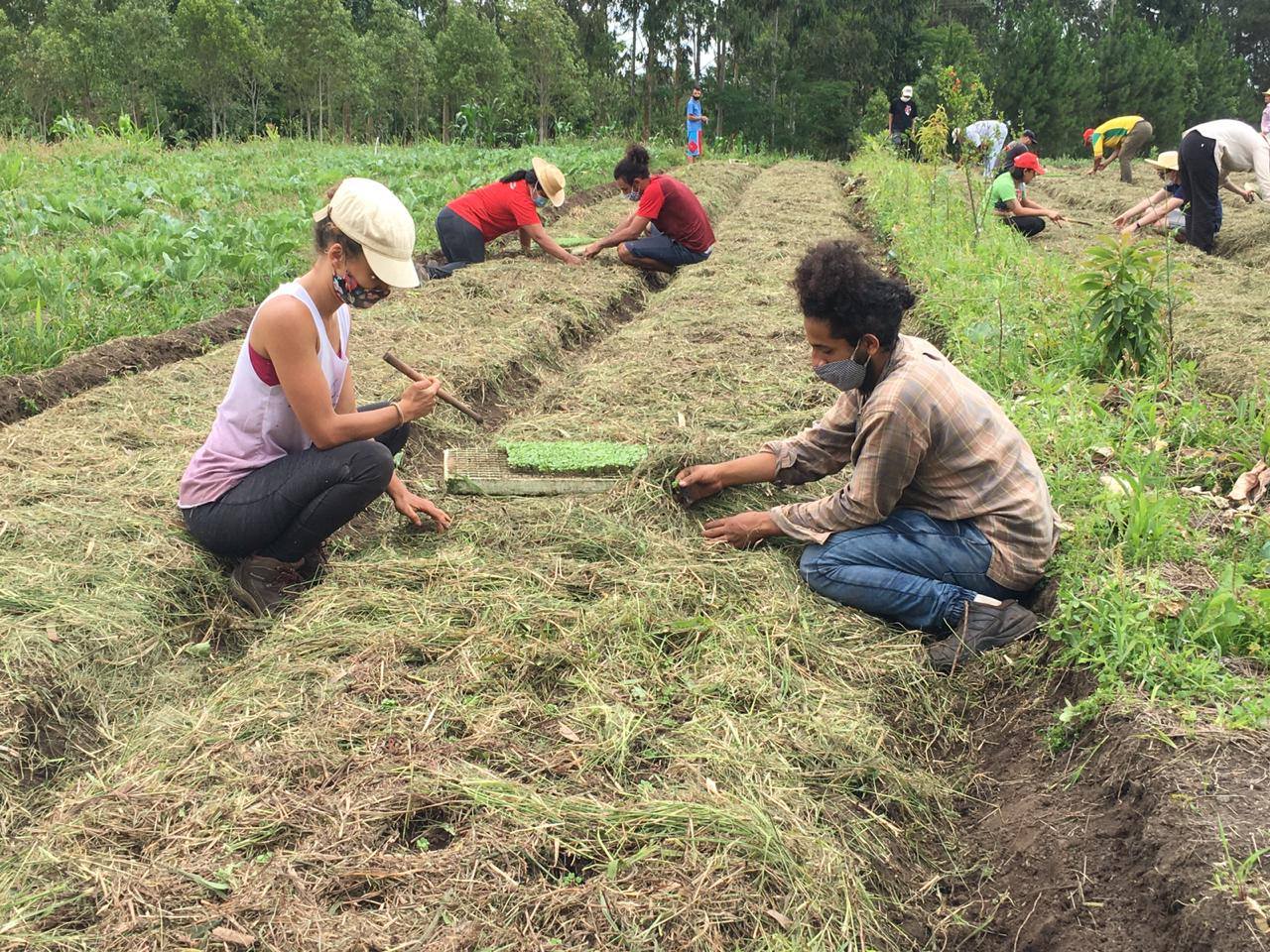RIO DE JANEIRO, BRAZIL – When it comes to the developments of agroecology in Brazil, one cannot help introducing Ana Maria Primavesi and her legacy to the debate. This woman agronomist and professor created the first soil management techniques that are, today, considered the basis of agroecology in the country. Primavesi’s techniques have not only become a reference in the agronomy field, but have also inspired many agroecological movements in Brazil.
Primavesi’s intimacy with the soil comes from a very early age: She started learning the first agriculture principles with her parents, who were small farmers in Austria. In 1948, after a turbulent phase in her life (World War II had just ended, and Primavesi had survived her time in a Nazi concentration camp), she moved to Brazil at the age of 28 with her husband, Arthur Primavesi – also a scientist.
Once in Brazil, it didn’t take long for Primavesi to go into action. In the early 1950s, right when the “Green Revolution” was on the rise and stimulated the agribusiness logic across the world, the agronomist started lecturing at the University of Santa Maria, in Brazil’s South, where she was based. Of the themes discussed in Primavesi’s classes, the productivity of the soils and their mineral deficiencies were some that she would always bring to the debate.

Later on, agroecology became the strongest theme in Primavesi’s researches, classes, and publications, to a point where the most conservative scientific community didn’t see her with good eyes. Agroecology, after all, is about fighting the use of pesticides, chemical fertilizers, and every related product that can deteriorate the quality of the soil. It is about doing agriculture in a way that sees the soil as a living organism – helping, ultimately, to maintain this organism alive.
Although she faced resistance from those (scientists, private enterprise, politicians) who stood for an agricultural approach aligned with the Green Revolution, Primavesi never ceased moving forward with what she believed in: “My passion is the soil, because everything depends on the soil, including the humans”, she said during an interview for O Globo Television in 2012.
In around 60 years of her career, Primavesi published 94 scientific articles (in Brazil and abroad), gave over 500 lectures, and received the One World Award, by the International Federation of Organic Agriculture Movements (Ifoam). Furthermore, she helped create the first post-graduate course of Agroecology in Brazil, and founded the Association of the Woman Organic Farmer.

Primavesi has also published 11 books, “Manejo Ecológico do Solo” (Ecological Management of the Soil) being the most famous. Released in 1979, the book articulated a lifetime of study: everything Primavesi learned and discovered throughout her life was there. Invested in a holistic view of agriculture, the book is considered revolutionary. More than that, it was published long before debates on sustainability existed in the international arenas. Today, the book is an absolute must for those studying agroecology.
The involvement of Ana Primavesi with Brazil’s Landless Workers’ Movement (MST), one of the countries most influential social movements, is also worth noting. Representatives of MST affirm that Primavesi’s contributions have been fundamental for the understanding of agroecology as a political stand and a way of living, having inspired the movement’s policies, values, and modus operandi.
Primavesi died in January 2020, at 99 years old. Her sons remember her as an “incredibly versatile” woman, who used to be a cook, a scientist, a pharmacist, and an activist, all at once. To know more about Primavesi’s life and work, check her website.

